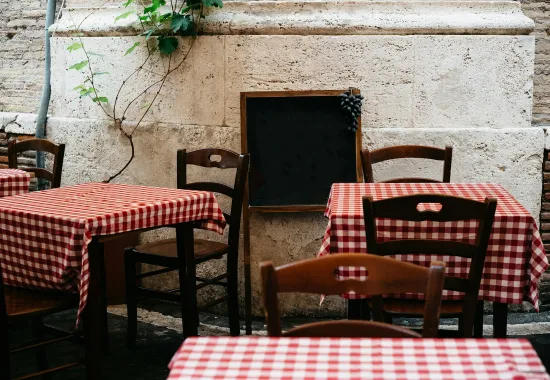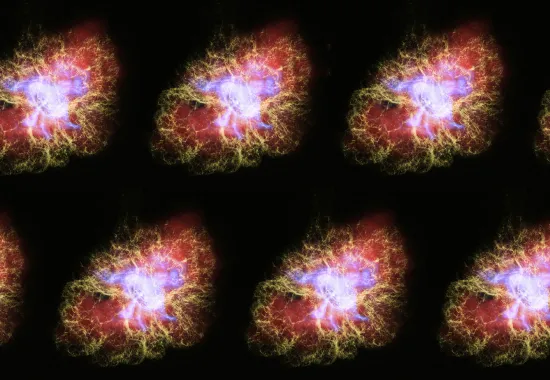The Salamander
The door was locked. She tried it again. It was still locked, of course, because no one had come to unlock it. No one had come to turn on the fluorescent lights in the empty room beyond, no one had come to unstack the chairs into a neat circle, no one had come to fill the urn on the card table with bodega coffee, nor the adjacent plastic tray with Hostess cupcakes, even though the website had clearly stated the time of the meeting was Tuesdays at 6 p.m., and it was Tuesday and her phone read 6:07.
She had spent the last fifteen minutes in the cold, watching her breath cloud the air, wondering if they’d let her just sit and listen, or if they’d make her give her real name, and if she could get away with a fake one. Now she wondered if there’d be any chance to give a name at all.
Before she’d scuttled from the subway station to the grand limestone building that had in its youth been a mansion, in adolescence a girl’s school, in middle age a church, and now spent its senescence as a community center, she had almost decided not to go. A polar vortex, they’d said, which at least gave a name to the winds that now nipped at her cheeks and the icy flurries that swirled in a crown above her head. Tonight, she had desperately wanted to huddle under a pile of blankets in the well-loved armchair at the foot of her bed, just like she had every night before this one, and tab through Twitter, and Instagram, and Facebook, and TikTok, and Reddit, and YouTube in search of familiar faces, the faces of people she’d never met, would never meet, but who felt almost like friends in the absence of any real-life friends.
There had been a handful of real-life friends, once, the very few people who she tolerated and who tolerated her, but one by one they’d left, faded out or forked off into different lives. Years ago, she’d seen an ad in a magazine for happy hour at some bar, the glossy picture full of smiling, attractive people clinking glasses. It had been a fantasy conjured by some marketing goon, but even now she returned to the scene in her quiet moments. They had names now, voices and personalities and happy, carefree childhoods like American Girl dolls, and sometimes it hurt how much she longed to be in that picture place with those doll people.
Occasionally, she downloaded the apps. But she never knew what to put on her profile. Forty-one years old. Accountant. Still a virgin. Only ever kissed a guy once, and only because he wanted to and she’d never done it and she wanted to know what it was like, though he looked like soggy toast and tasted like sour milk. Maybe she had once been pretty, but she wasn’t anymore, not really. Certainly, when she was younger she’d been prettier than she was now, but had she been pretty? Surely even people who weren’t pretty deserved love, intimacy, connection? The words made her shudder. Then the dick pics came rolling in, and into the trash the apps went again.
It’s not like the apps could tell people who she really was or what was really wrong with her, or how she’d always been defective, at least since the age of eight, in that one particular, peculiar way. She was sure she’d always been this shrunken version of herself, though in her memory somewhere, if she really looked, she would find a bright-eyed girl, quick to smile, eager for the world and all its adventures, on a warm, sunny day in spring, some thirty-odd years ago, at some gathering the details of which were lost to time, bouncing on a trampoline with a wheat-haired friend, carefree knowing the grass below was soft and the grown-ups who sat on the patio were watchful.
Then, her story—only it wasn’t hers, it belonged to some other little girl-now-woman, but it was so like hers that even from close-up the details fell into puzzle-place.
But to find that memory, she would have to peel her fingers from over her eyes and look into that gaping chasm over which the bridge of time extended, that all-devouring abyss that had transformed her into a shrunken woman, ever folding inward in search of, or perhaps in evasion of, the light that had once animated her, whose brightness now seemed blinding, terrifying, incomprehensible.
“Are you looking for the Salamanders?”
She hadn’t seen the man in the brown jacket round the corner, but now, as he pulled a ring of keys from his pocket, she tried to assess if he was also there for the meeting, perhaps even the facilitator.
“The—I’m sorry, what?”
“The survivors’ group.”
“They’re called the Salamanders?”
“Think about the first two letters. It says it without saying it.”
Though they’d omitted the “C” at the front.
The brown-jacketed man moved to a basement door she hadn’t noticed and flipped his gloved fingers through his keys. It was oddly comforting that he found her naive, as if she was a college freshman learning the names of the campus secret societies and he a savvy upperclassman who could get her in.
“Are you also …?” she ventured, not knowing how to ask.
She knew it was common—more common than most people would like to admit—but she’d never met someone in the flesh, probably because she rarely met anyone at all. It had been a podcast, of all things, a documentary series she’d had on in the background while making her dinner on Friday. The presenter had a soothing, husky voice, cool yet intimate, that somehow rendered her morbid topics cozy. A boy, seven, who disappeared on his way home from a parade—sliced scallions tumbling off her knife; a young woman whose body was found in the river—white rice sputtering in its cooker; an older man, sentenced to death for a crime he didn’t commit—soup simmering fragrant on the stove.
Then, her story—only it wasn’t hers, it belonged to some other little girl-now-woman, but it was so like hers that even from close-up the details fell into puzzle-place, and the presenter’s icy-warm voice tugged her away from her spoonful of steaming soup and flung her headfirst into the impassable chasm.
It was a game. At least, that’s what he told her.
She didn’t know that it was wrong when it happened, only that she couldn’t tell anyone about it, or they would both get in trouble. He said it would be fun, and it was, when it was just Barbie dolls on the carpet, before leaking skylight cast baby blue on white bathroom tile. When her parents found out, the game ended and she was blamed—deficient, deformed, devil child—taught to blame herself—teeny-tot-temptress, prepubescent Jezebel—blamed herself for playing the game that he, older and cleverer and better-loved, had taught her to play, and he had gone on to live a bright, eager, adventurous life, while she had become shrunken and dull and afraid. But she was tired of being shrunken. She wanted to bloom, and to bloom she had to step into the sun and bare her scars to the indifferent sky.
The chasm filled with light, and she saw the ladder out, worn with the footsteps of so many others before her. She wanted, more than she’d wanted anything in her life, to meet this woman. She would wrap her arms around this woman, and her arms would be warm, and she would press her chest to hers, and she would tell her that she was okay, and the woman would respond in kind.
But the story was anonymous. The woman was out of reach. Then, she thought perhaps she didn’t need to meet that woman in particular, just someone like her, so she trawled the web and found something local, a small site coded in HTML twenty years ago and never updated since, a floral beige background like old dining room wallpaper, and bright green serif text that read:
Tuesdays, 6 p.m.
She wavered through the weekend. People tended not to like her, not that they disliked her, necessarily, but they rarely found her interesting or worthy of knowing. And meeting these people could turn kin into strangers, theory into flesh, and possibility into rejection. But not going would be like sealing herself in a tomb of her own making. Her last therapist had described her life thus. It was why she’d fired him, but ever since, she’d had the growing suspicion that he was right.
No, she would go. They would accept her, they had to. She was one of them. She would see them for who they were, not their shrunken selves, and they would see her for who she was, they would see her and know her and love her, and she would be seen known and loved, not blamed, no longer blame herself, no longer shrink, she would grow, and bloom, and finally, finally allow herself to love.
“Oh, no,” said the man. “I maintain the building. Meeting’s cancelled. Too cold—that’s why I’m here. Turn the heaters on so the pipes don’t freeze. You can try again next week.”
He went inside, and she stood outside and watched the door close. The lights in the basement flicked on, not for her.
She trudged through deepening snow and across patches of black ice back to the subway station, where she shivered on the bench until finally—the trains were delayed due to weather—her train howled into the platform. When she got home, she peeled the ice-crusted scarf from her neck, turned the thermostat to eighty, wrapped herself in a blanket, put a container of soup in the microwave, and waited for spring to come.
Recommended
The Old Man in the Café
White Christmas
A Dying Cow Giving Birth






